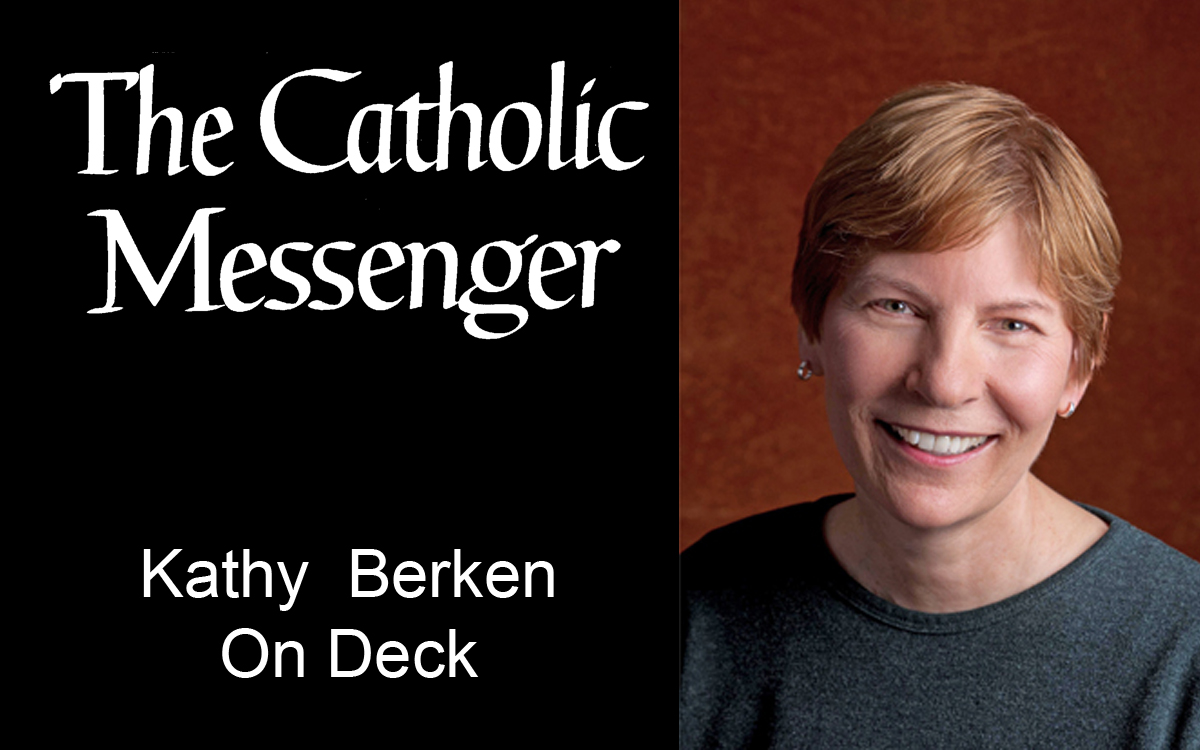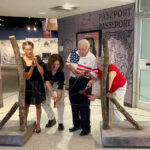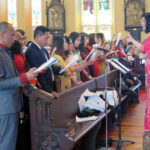By Kathy Berken
I enter this column with some trepidation because this is the first time in 50 years that I’ve written my story for strangers. The recent flood of news reports about sexual misconduct moved me to step up to the plate.
Rest assured I won’t share any explicit details about the 10 years of my childhood spent at the hands of a pedophile. During the 1950s and ‘60s, a man who worked for my uncle as a masseur molested me and most of my male and female cousins, and was never caught. Back then, our society was nearly silent about such behavior, except for whispered references to “dirty old men in bars” or “perverts in the park.”
 We know now that most perpetrators know their victims. According to RAINN (Rape, Abuse & Incest National Network), “Of sexual abuse cases reported to law enforcement, 93% of juvenile victims knew the perpetrator: 59% were acquaintances; 34% were family members; 7% were strangers to the victim” (www.rainn.org). CNN reports that one in four females in the U.S. will be sexually assaulted in their lifetime (“Sexual harassment: How it stands around the globe,” Nov. 25, 2017).
We know now that most perpetrators know their victims. According to RAINN (Rape, Abuse & Incest National Network), “Of sexual abuse cases reported to law enforcement, 93% of juvenile victims knew the perpetrator: 59% were acquaintances; 34% were family members; 7% were strangers to the victim” (www.rainn.org). CNN reports that one in four females in the U.S. will be sexually assaulted in their lifetime (“Sexual harassment: How it stands around the globe,” Nov. 25, 2017).
The whole family knew him, but only the kids knew the dirt, including his classic pedophile behavior called “grooming.” When I was 7, he touched my knee briefly as I sat at a table, playing in my room. That exact moment — which otherwise could seem innocent —burned into my memory. I still remember the scared feeling in my gut, but had no reference to judge it with. I kept playing; he patted me again on my knee and walked out. Thus, it began.
Each time he’d visit, it became more personal. This was “our little secret,” he’d say and then give me gifts for being a “good girl.” For those 10 years I lived two lives, clinically referred to as “dissociation.” In one, I enjoyed school, worked on our farm, played with friends, learned skills and helped around the house. My other life — dark and filled with shame — took a sharp turn one morning when I was 17. That Friday when he visited he looked very ill and, oddly, he didn’t touch me. Early Saturday I heard a scream coming from the living room. Our family rushed in to see him push his hand against the wall, collapse, and die. My brother and I smiled. The funeral director arrived with a body bag and told us kids to leave the room. I obeyed, imagining this liberating scene of him being zipped up and carried away.
Finally, I was free. Or so I thought. Intense shame and guilt overwhelmed me so much that I went to confession. It didn’t help. Years of therapy, talking with close friends and educating myself, did. I learned that absolutely none of it was my fault. I also learned, too late, that “fight and flight” are not the only natural responses to fear/trauma. Psychologists have added “freeze” to that list, which eventually explained the paralysis I experienced.
The first person I told was our young assistant pastor, who patiently listened as we walked around the high school track one rainy evening. He wanted me to tell my parents, but I said I wouldn’t hurt them with information they could do nothing about, as the man was dead. My parents both died eight years later spared of that pain. I never regretted that decision.
Over the years, talking to people I trust has proven extremely therapeutic. Thirty years ago, feeling safe and supported, I spoke publicly about it during my Cursillo talk. How wonderful when several women came forward saying it also happened to them. One just wrote me a note stating, “We’re sisters.”
Just as our children need to learn about boundaries, so too do we adults need to learn that none of us has the right to touch anyone without their permission. Here’s an excellent article at www.girlscouts.org: “Reminder: She Doesn’t Owe Anyone a Hug. Not Even at the Holidays.”
I pray that, no matter what happened to you, or when, you can tell someone you trust. The #MeToo campaign is giving people like us courage to speak up so we can heal. We are not alone and we are not to blame.
Millions of us — men and women — belong to a club none of us ever wanted to join, but we are connected and we can support and listen to each other.
(Kathy Berken has a master’s degree in theology from St. Catherine University, St. Paul, Minn. She lived and worked at The Arche, L’Arche in Clinton 1999-2009 and is author of “Walking on a Rolling Deck: Life on the Ark (stories from The Arch).”)











